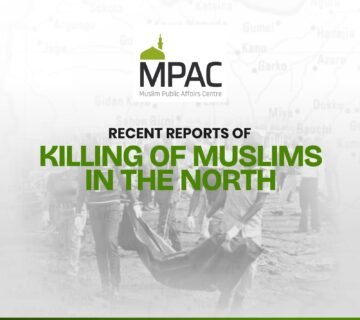
India, a diverse and multifaceted nation, has long prided itself on being a melting pot of religions and cultures. However, recent years have seen a significant increase in Hindu nationalism which manifests as outright hatred towards Muslims, a concerning trend that has alarmed both domestic and international observers. The number of incidents in which Muslims are subjected to discrimination, harassment, and atrocities in India is on the rise.
In 1992, the demolition of the Babri Mosque by Hindu nationalists resulted in a profound split between Muslim and Hindu communities, and the subsequent protests resulted in the murders of more than 2,000 Muslims. The consumption of beef, the recitation of the Adhaan in Mosques, the wearing of a Hijab in public, and other similar topics have recently emerged as political issues. One particular community – the Muslims – has been the primary target of a variety of discriminatory laws and policies, including the Citizenship Amendment Act (CAA) and the National Register of Citizens (NRC), as well as growing clashes during Ram Navami and Muharram processions, cow vigilantism, the “Love Jihad,” and more.
The recent communal violence that erupted in Nuh, which is a Muslim-majority district in Haryana, is a case in point. Six people were killed in clashes that took place during a VHP procession, including two home guards and a Muslim Imam. As a result of this, homes were destroyed by bulldozers, stores that were owned by Muslims were forced to close their doors, a Mosque was set on fire, and the residents of the area were coerced into moving back to their hometowns.
So, what has contributed to the rise of Hindu nationalism?
Hindu nationalism has its roots in the early 20th century, but its rise to prominence in Indian politics began in the late 1980s and early 1990s. It encompasses a range of views that emphasise Hindu values and the idea of India as a Hindu nation.
The political ascent of the Bharatiya Janata Party (BJP) has been a critical factor in the surge of Hindu nationalism. The party, which has been part of India’s government in various capacities since the 1990s, openly advocates Hindu nationalism, and brutality against Muslims.
Several social factors have contributed to the rise in Hindu nationalism. These include the perception of a loss of Hindu cultural identity, fears related to demographic changes, and a strong reaction to globalisation and westernisation.
The rise in Hindu nationalism and hostility towards Muslims in India represents a significant and complex challenge. It has multiple roots, ranging from political opportunism to genuine social anxieties. Below are some examples:
Legislative Measures
Recent laws are discriminatory against Muslims, including the Citizenship Amendment Act (CAA) and the National Register of Citizens (NRC). Critics argue that these laws might be used to marginalise and disenfranchise Muslims in India.
Lynching and Violence
India has witnessed an alarming increase in violence against Muslims. Lynchings, often under the pretext of cow protection (since cows are considered sacred in Hinduism), and other forms of targeted violence have created an atmosphere of fear and intimidation.
Social Polarisation
The rise of Hindu nationalism has led to increased social polarisation. The demonisation of Muslims through fake news, hate speech, and biased media reporting has further widened the divide between Hindus and Muslims.
International Reaction
The increasing Hindu nationalism and hostility towards Muslims in India have attracted widespread international attention and condemnation. Many human rights organisations, as well as foreign governments, have expressed concern over the deteriorating situation of religious minorities in the country.






